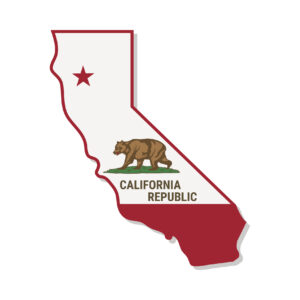 By Eden E. Anderson, Rebecca S. Bjork, and Gerald L. Maatman, Jr.
By Eden E. Anderson, Rebecca S. Bjork, and Gerald L. Maatman, Jr.
Duane Morris Takeaways: On July 17, 2023, the California Supreme Court issued its long-awaited decision in Adolph v. Uber Technologies, Inc., No. S274671 (July 17, 2023), addressing standing requirements under the Private Attorneys General Act of 2004 (“PAGA”). The Supreme Court held that, once a PAGA plaintiff’s individual claims are compelled to arbitration, the plaintiff retains standing to maintain non-individual, representative PAGA claims in court so long as they are an aggrieved employee. If the plaintiff loses in arbitration, they are not aggrieved and therefore lack standing. However, if the plaintiff prevails or settles their individual claims in arbitration, they can then return to court to prosecute their non-individual PAGA claims. For companies facing PAGA claims, the ruling in Adolph is required reading, as it will usher in a new period of workplace litigation in California.
Case Background
Erik Adolph, an Uber delivery driver, alleged that Uber misclassified him as an independent contractor. Although Adolph initially sought to maintain a class action, those efforts were thwarted by a class action waiver in his workplace arbitration agreement. Adolph then amended his complaint to allege PAGA claims. The trial court denied Uber’s motion to compel arbitration, and the Court of Appeal affirmed on the basis of California’s prior rule, under Iskanian v. CLS Transportation, 59 Cal. 4th 348 (2014), that PAGA claims cannot be split into individual and non-individual parts and that a PAGA claim was non-arbitrable.
Uber filed a Petition for Review and, while it was pending, the U.S. Supreme Court issued its decision in Viking River Cruises, Inc. v. Moriana, 142 S.Ct. 1906 (2022), holding that PAGA claims are divisible and that the Federal Arbitration Act preempted California law insofar as it precluded arbitration of an individual PAGA claim. The U.S. Supreme Court further opined that, once a PAGA plaintiff’s individual claims are compelled to arbitration, they lose standing to pursue non-individual PAGA claims. Against this backdrop, the California Supreme Court granted review in Adolph.
The California Supreme Court’s Decision
In a unanimous decision, the California Supreme Court disagreed with Viking River’s interpretation of PAGA standing. The California Supreme Court held that, so long as an employee alleges they are aggrieved by a violation, they maintain standing under the PAGA. Thus, even after individual PAGA claims are compelled the arbitration, the plaintiff retains standing to pursue non-individual PAGA claims in court.
As to logistics, the Supreme Court clarified several things. First, even though individual PAGA claims may be pending in arbitration and non-individual PAGA claims pending in court, the claims all remain one action, and the court action may be stayed pending completion of arbitration. Second, if the plaintiff loses in arbitration, at that juncture, the plaintiff no longer has standing to maintain non-individual PAGA claims. Third, if the plaintiff prevails in arbitration or settles their individual claims, they continue to possess standing to return to court to pursue non-individual PAGA claims on behalf of others.
Implications for Employers
In the wake of Adolph, the stakes for employers in individual PAGA arbitrations are high. Employers facing PAGA claims should conduct an early assessment of the plaintiff’s individual claims and if unmeritorious aggressively defend the matter because a win in arbitration will extinguish the case in court as well. We also anticipate that PAGA plaintiffs may begin alleging their aggrieved employee status, yet disclaiming any individual relief, in order to bypass arbitration altogether. It remains to be seen if that pleading strategy will be condoned by California courts.
